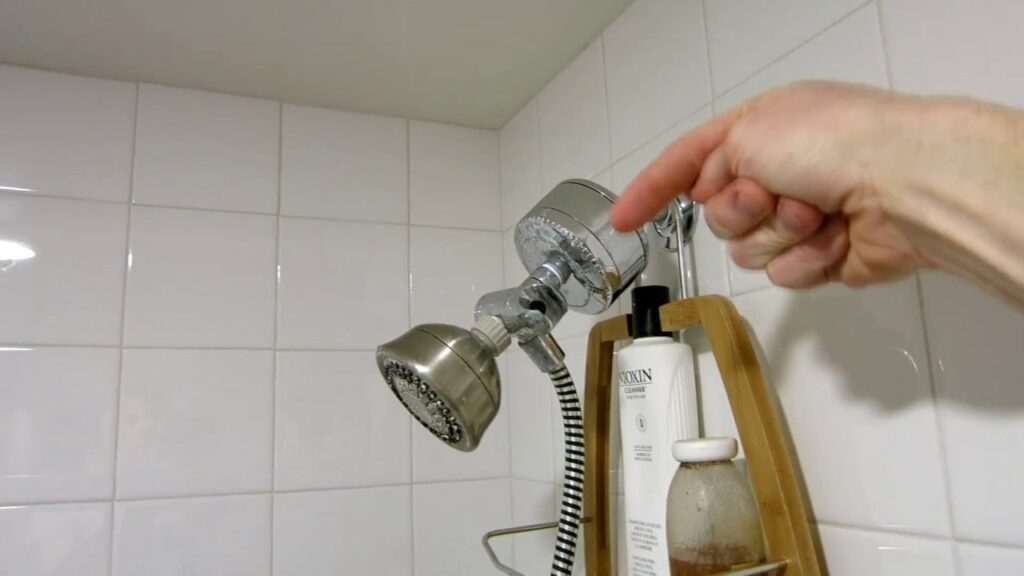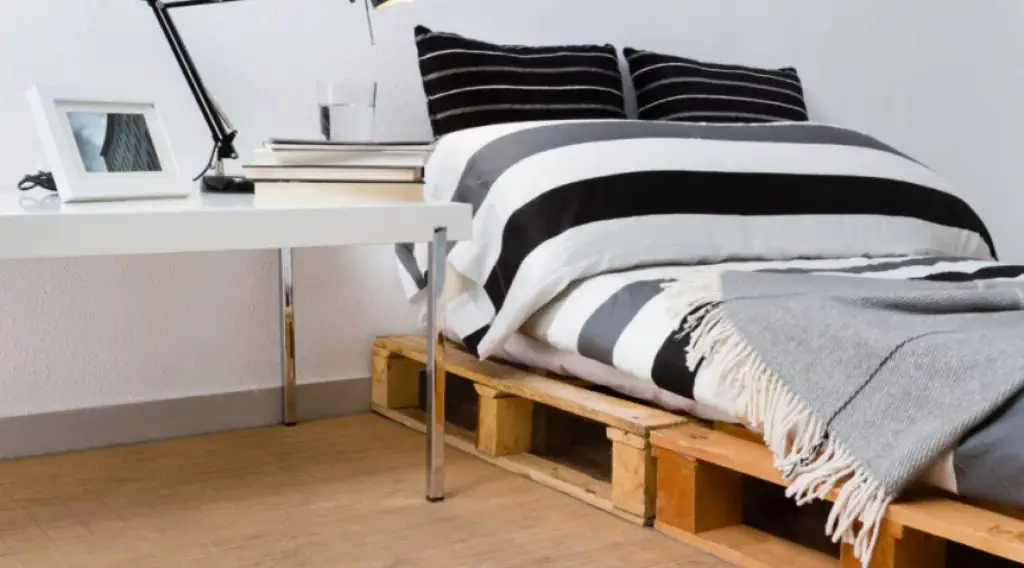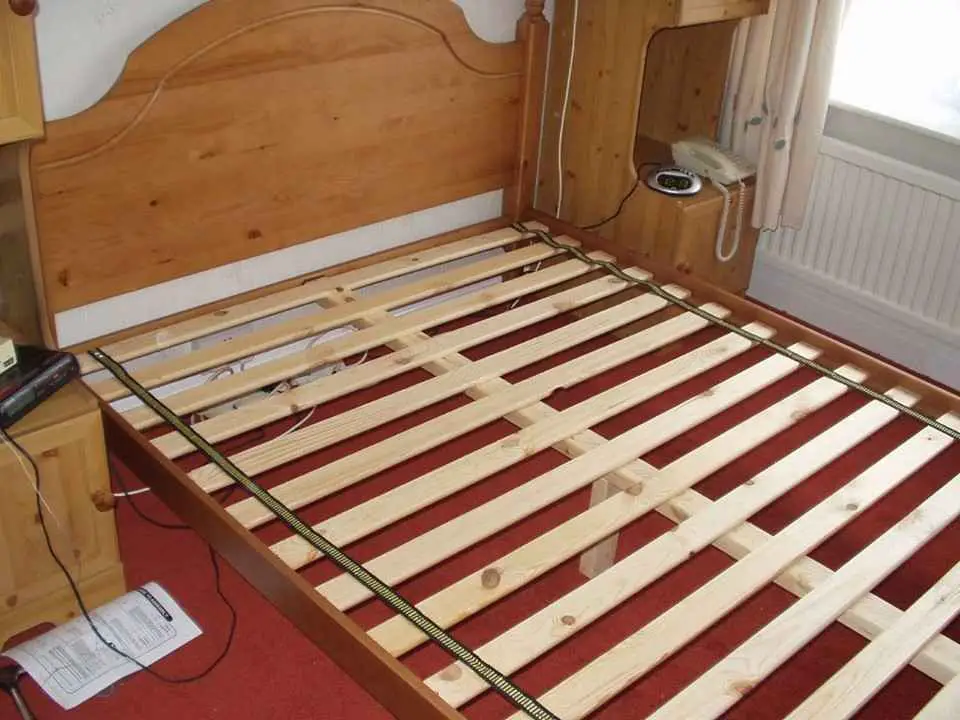Although there are plenty of luxurious beds available, some people prefer to sleep on the floor, but what are the difficulties of sleeping on the floor first?
Sleeping on a bed is something we take for granted, but many other cultures around the world believe that sleeping on a hard floor is more conducive to good sleep.
But is sleeping on a hard, unpleasant surface really good for you?
There are many opposing viewpoints at work, and I’m sure you’ve encountered many of them.
That made me curious to find out more about the potential consequences of spending the night on land.
Drawbacks of Sleeping on the Floor?
Here are some important drawbacks to be aware of:
1. Extreme back pain:

Even with the back issues, sleeping on the floor is a living nightmare, so I can’t fathom what that would be like. If I had to guess, I’d say you’d feel worse when you woke up.
However, there are many differences in people’s opinions about back pain.
Although some people claim that sleeping on the floor helps their back discomfort, others claim that it really makes it worse.
I’m going to presume that you identify with the second of those two groups more frequently. Finally, sleeping on a hard surface interferes with your back’s ability to keep its natural curve.
A fascinating study was conducted in 2003 that divided 313 participants into two groups. The second group slept on firm beds, while the first group slept on medium-firm mattresses.
You may have already guessed that the first group experienced fewer back pain problems than the second.
2. Reduced core temperature:

As you probably already know, heat builds up and as a result, floors are generally cooler than other surfaces.
However, sleeping on the floor in summer may sound like a wonderful idea, but exposure to the cold is not really healthy for you.
Floors have the power to drop your body temperature instantly because they can get very cold.
Even if you’re buying a yoga mat or futon mattress, you should keep in mind that these materials can’t really retain body heat, or at least not as well as a traditional bed mattress.
3. Direct exposure to dirt:

One of the dirtiest areas of your home has to be the floor. It is usually covered with layers of dust, some of which may not be visible at first. If your floor is carpeted, the layers of dirt are probably much thicker.
Additionally, there are always (quite a few) insects lurking about; I don’t mean to scare you. You don’t want people around you and I know I don’t!
4. Direct contact with allergens:

As I have already said, carpets accumulate a lot of things that we never want to see. The most frequent allergens discovered in carpets are mould, dust, and dust mites.
I believe that is enough support for you to never think about sleeping on the floor again.
If you have an allergy, you can directly expose yourself to one or more of these three things, which can cause some serious symptoms. The most common are as follows:
- Sneezing
- Runny nose
- Breathing cough problem
- Teary
- Red
- Itchy eyes
5. You will need a mattress:

Be aware that you will need to prepare if you decide to continue sleeping on the floor. You shouldn’t sleep on a carpet; thus, you should purchase a mattress that will slightly raise you.
Just recall the section where I warned you about the possible presence of insects near your head. You will immediately understand the need for a lift, I am sure.
Futon mattresses are undoubtedly the best option for sleeping comfortably on the floor. Also, remember that the thicker, the better.
6. Discomfort inhibits bonding time:

It might not be the best idea to sleep on the floor if you want to cuddle with your partner. It can take some time to learn which positions are most effective (or, more accurately, which positions are not too uncomfortable).
I would admit that getting used to sleeping on the floor takes some time. There is a considerable likelihood that the problem becomes far more complicated if you include another individual in the mix.
You’ll spend a lot of time walking around trying to figure out how to make the situation pleasant because the floors aren’t particularly nice when walking around.
Having said that, I wouldn’t even recommend trying it because it can be boring and tiring.
7. You may feel threatened by others:

do you live alone You’re lucky if you do because you’re at risk of being stepped on if you share a house with others.
Even though it sounds funny, for example, if you are sleeping in the hallway and one of your roommates or family members decides to get up in the middle of the night to get a glass of water, you can have problems.
Additionally, it works both ways because they can accidentally crash to the ground.
In speculation? Make sure you are not in anyone’s way if you intend to sleep on the floor. It would be wise to find a safe area in the room.
Who Should Not Sleep on the Floor?
While it was widely believed that pregnant women should never sleep on the floor, that is no longer the case.
Naturally, it still holds true that individuals shouldn’t do this in the winter.
The elderly should completely avoid resting on hard, cold surfaces.
Due to their weaker bones and muscles compared to younger persons, older folks can experience considerable stiffness from such surfaces. Yes, it can be so problematic that they can’t wake up the next day.
Side sleeper:

Your blood circulation and brain health both benefit from side sleeping. Whether you choose to spread your legs or curl up like a foetus, this sleeping position is undoubtedly the most characteristic and comfortable for us all.
You will have some difficulty sleeping on your side on the floor. If the mattress can’t support your weight, your calves, hips, and shoulders will suffer.
Therefore, you should either give up on the concept altogether if you can’t sleep on your back or stomach or at the very least, get a nice futon mattress.
Stomach sleepers:

Many of you have probably heard that sleeping on your stomach in general is not a good idea, much less on the floor.
This is because this position puts stress on your back and spine, making it impossible to keep your spine in a neutral position.
Currently, the only correct position for sleeping on the floor is on your back.
If you fit that description, you’ll probably enjoy it.
Do You Really Want to Sleep on the Floor?
If you’ve already slept on the floor, enjoyed it, and had no negative effects, feel free to continue! I think it may not bother you much as some people claim that it has some benefits.
On the other hand, if you’ve never done it before and are intrigued to try it, I recommend you give it an attempt.
You really never know; it might be a fantastic experience!
Here are some tips for getting a good night’s sleep on the ground.
But if any of the allergies I listed above make you sick, I wouldn’t try it if I were you.
At best, you’re going to have runny eyes and an itchy nose for a few days, and I don’t believe it’s worth it.
After all, not everyone enjoys sleeping on the floor. I hope this helps you decide if this is a possibility for you.

How To Sleep Properly on the Floor?
Follow these detailed steps to get started if you’re interested in sleeping on the floor:
- Select an area of the floor that is clear of clutter.
- Place a mat, blanket, or sleeping bag on the floor. You can employ several layers.
- Add a little pillow. Pillow stacking is not advised as it can strain your neck.
- On the floor, sleep. Try sleeping on your stomach, side, and back. Try different postures to determine which one feels most comfortable.
- Put your knees on a different pillow if you need more support and are lying on your stomach or back. You can also tuck a pillow under your lower back if you prefer to sleep on your back.
- Put a pillow between your knees if you’re lying on your side.
- Give the floor some time to become used to it. Try taking a quick nap before bed at night. Another option is to set the alarm two or three hours later and go back to sleep. Over time, you can extend the length of time you spend sleeping on the ground.
Sleeping on the Floor with Child or Pregnant:
Pregnant women generally feel safer sleeping on the floor. Many pregnant women find that sleeping on the floor is the most comfortable option.
Do what makes you happy. But keep in mind that you must first sit on the ground before standing back up. If this is uncomfortable, you can avoid sleeping on the floor.
Even if you wish to co-sleep, which is not advised on a bed, it is okay to put the baby to sleep on the floor.
Co-sleeping increases the chances of:
- Sudden Infant Death Syndrome (SIDS)
- Suffocation
- Falls
Soft surfaces such as pillows and blankets further increase the risk because they can obstruct the baby’s airway.
However, co-sleeping has been associated with reduced rates of SIDS in societies where floor sleeping is popular.
People in this society sleep on mats on the paved floor. Nothing soft is used. The baby can also use a separate mat for sleeping.
Before placing your infant to sleep on the floor, speak with your child’s paediatrician.
Also read: Leaving Windows Open at Night Security!
FAQ: Is Sleeping on the Floor Actually Good for You?
Q1. Why do Japanese people sleep on the floor?
Proponents of the Japanese sleeping system assert that sleeping on the floor has many health and non-health-related benefits.
Colder temperatures are one of them because cooler air settles over the land. Reduces back and muscle tension and improves blood circulation.
Q2. What are the benefits of sleeping on the floor?
According to proponents of floor sleeping, it can reduce back discomfort, improve posture, and promote better sleep.
Sleeping on a moderately firm mattress improves spinal alignment, and increases sleep comfort, and there’s plenty of evidence to support all three.
Q3. Is sleeping on the floor healthy for your posture?
Since you don’t have to worry about sinking too far into the mattress, sleeping on the floor can help keep your spine straight while you sleep.
To reduce the stress on your spine, you may need to use a pillow. For example, you may want to place a thin pillow under your lower back.
Also read: How to Sleep with your Headphones?
Conclusion:
Sleeping on the floor is not a new practice, it is characteristic of many cultures around the world.
Despite the lack of scientific evidence, some people proclaim that it also helps with back issues and posture.
The best alternative for you might not be to sleep on the floor if you have a chronic disease or limited movement.
Your specialist can decide if you are eligible.










